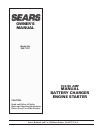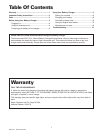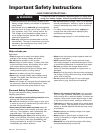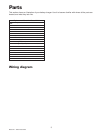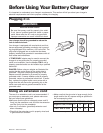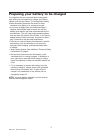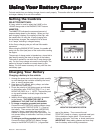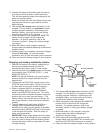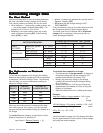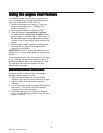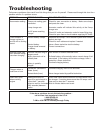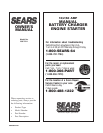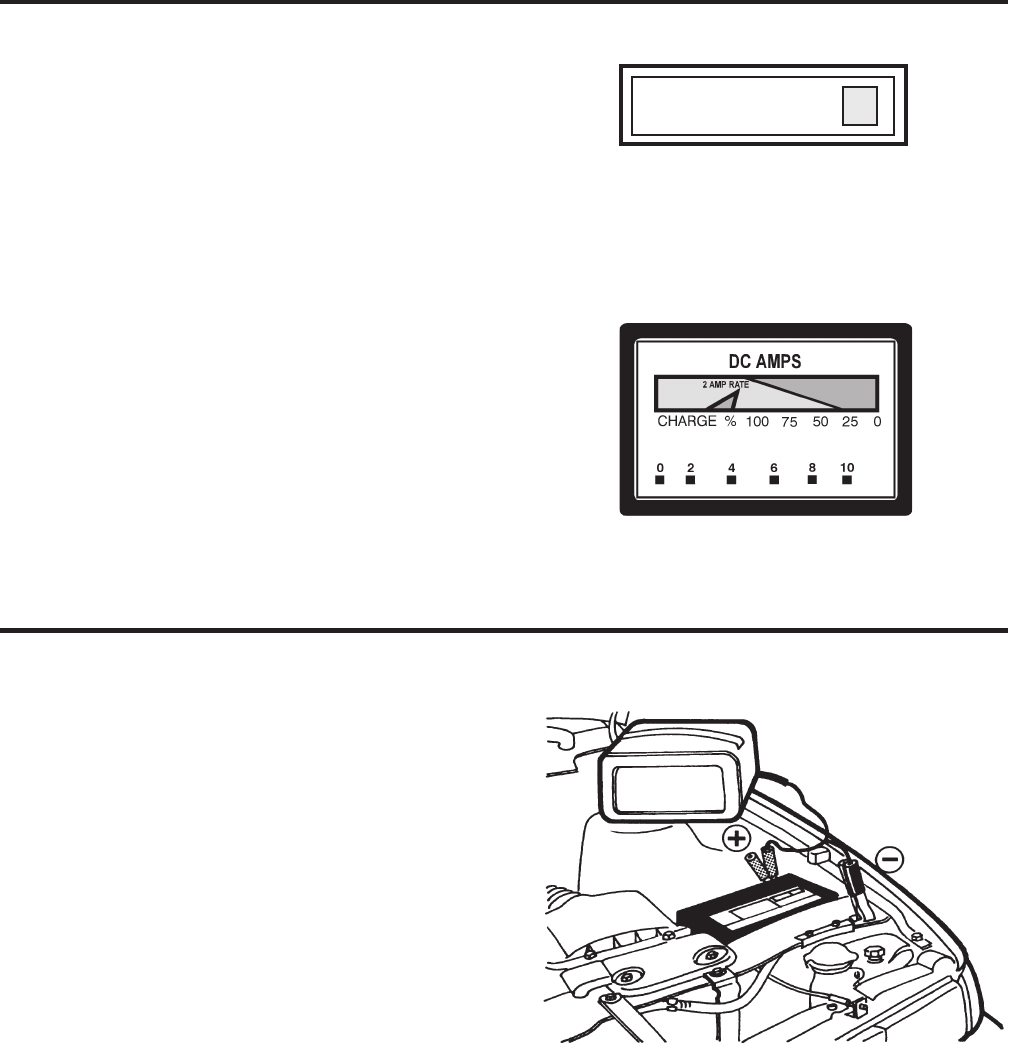
6
Sears 211 - Sch 510 9/14/95
Using YUsing Y
Using YUsing Y
Using Y
our Battery Chargerour Battery Charger
our Battery Chargerour Battery Charger
our Battery Charger
For best results from your battery charger, learn to use it properly. This section tells how to set the controls and how
to charge a battery in or out of the vehicle.
Setting the Controls
SELECTOR SWITCHES:
A 3-way switch is used to select the 2-AMP or the
10-AMP charge rate or the ENGINE START feature.
AMMETER:
The AMMETER indicates the measured amount of
amperes being drawn by the battery. When you first
start charging a battery, the reading will be high, with
the needle near 10 using the 10 amp charging rate.
As the battery charges, the needle will fall to about
4 or 5 amps, indicating a charged battery.
At the 2 amp charging rate you will see little needle
movement.
When using the ENGINE START feature, the needle will
swing into the
Start (red)
area of the scale while cranking
the engine.
10 AMP 2 AMP ENGINE
START
▲▲▲
The percent of charge scale is intended as a visual aid to
help simplify reading the state of charge of the battery.
The meter is scaled for use with the 10 amp charge rate
only. For the 2 amp charge rate use the red triangle. The
percent of charge is based on current drawn by the
battery. For this reason accuracy will vary with the size
and battery type.
post of the battery. Then connect the red
(POSITIVE) clamp to a heavy, unpainted metal part
of the chassis or engine block. Do not connect
clamp to carburetor, fuel lines, or sheet metal parts.
IMPORTANT: Wear safety glasses and face away
from the battery while making connections.
NEGATIVE GROUNDED SYSTEM
Charging Your Battery
Charging a battery in the vehicle:
1. Arrange the power cord and charging leads carefully
to avoid damage that could be caused by the hood,
door, or moving engine parts.
2. Keep clear of fan blades, belts, pulleys, and other
parts that can cause injury.
3. Check the polarity of the battery posts as indicated
on the battery case: POSITIVE (POS, P, or +) and
NEGATIVE (NEG. N or -). NOTE: The positive post
on top-post batteries is usually larger than the
negative post.
4. Identify which battery post is ground or connected
to the chassis. THE NEGATIVE POST IS
NORMALLY THE ONE THAT IS GROUNDED.
5. To charge a negative grounded post system:
Connect the red (POSITIVE) battery charger clamp
to the ungrounded POSITIVE (POS, P, +) post of
the battery. Then connect the black (NEGATIVE)
clamp to a heavy, unpainted metal part of the
chassis or engine block, away from the battery. Do
not connect clamp to carburetor, fuel lines, or sheet
metal parts.
To charge a positive grounded post system:
Connect the black (NEGATIVE) battery charger
clamp to the NEGATIVE (NEG, N, -) ungrounded
START



